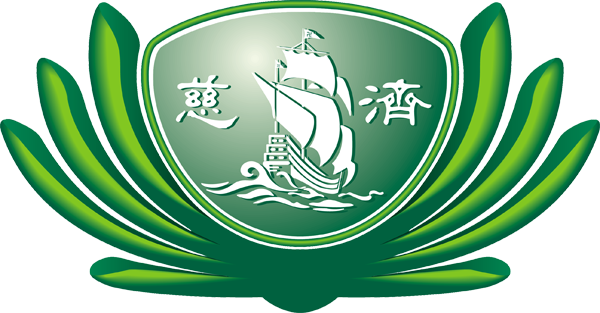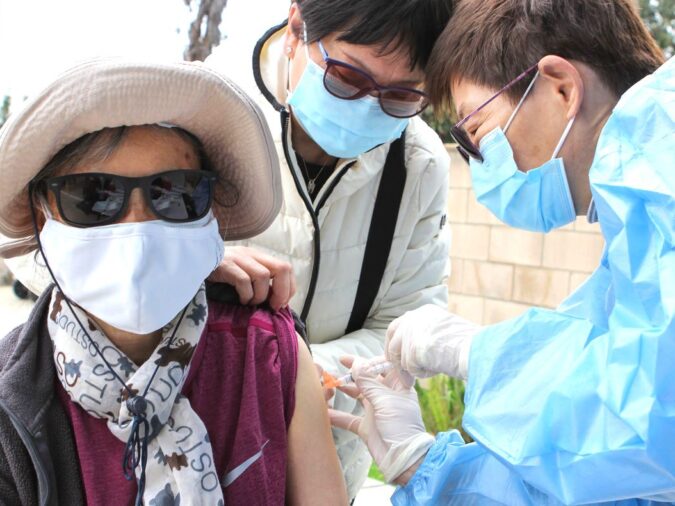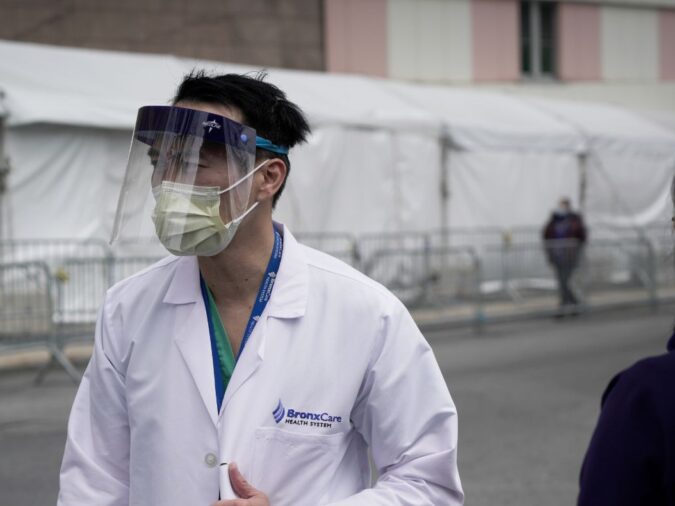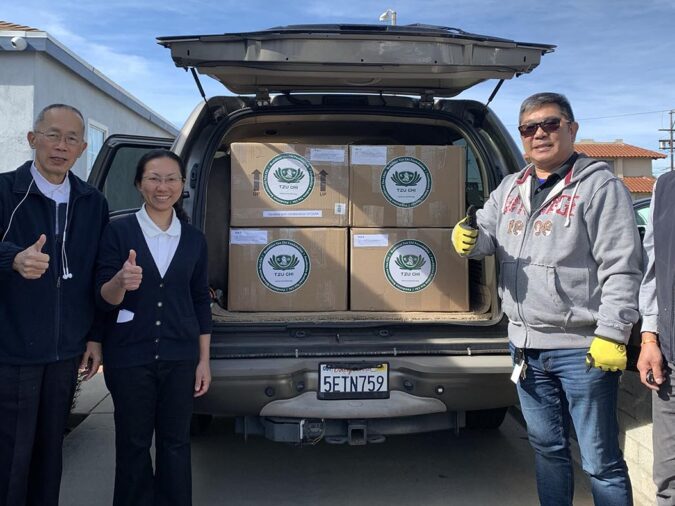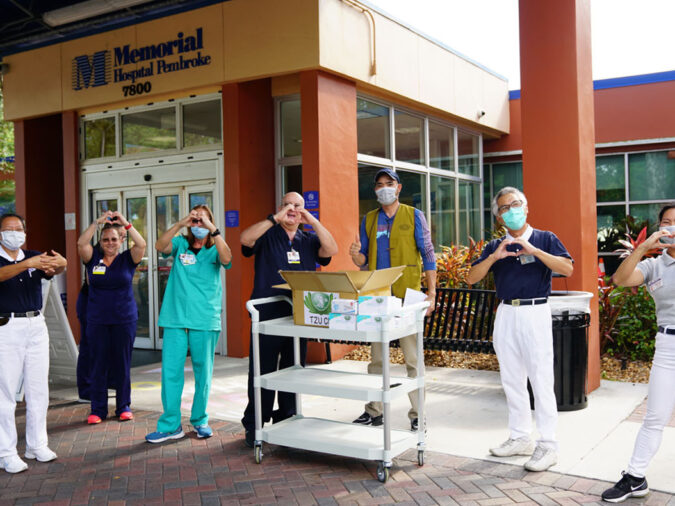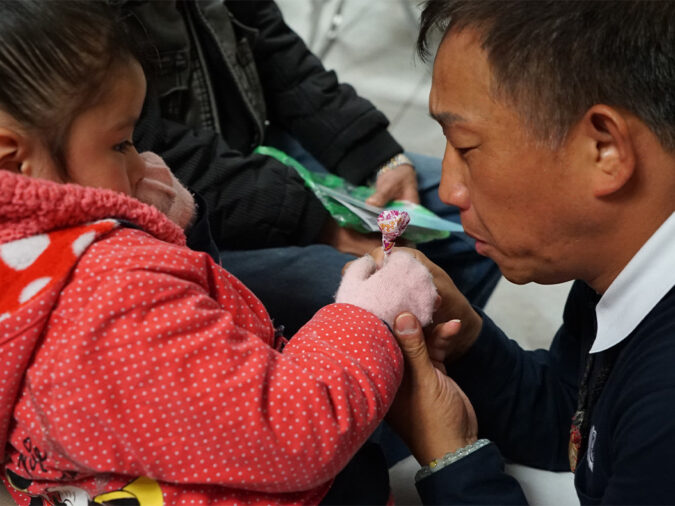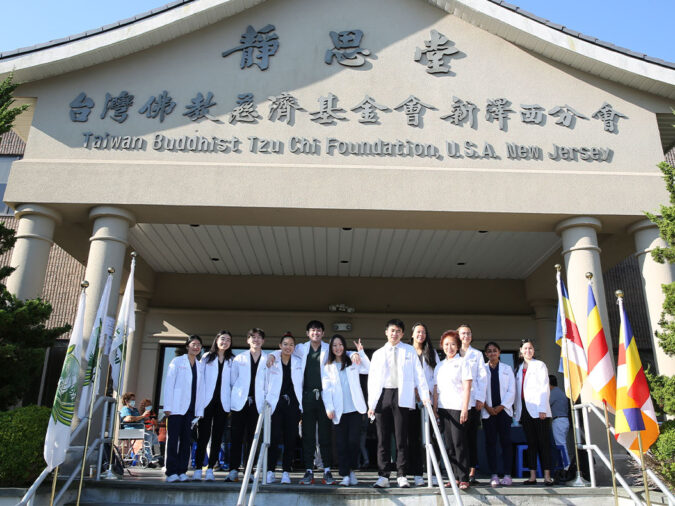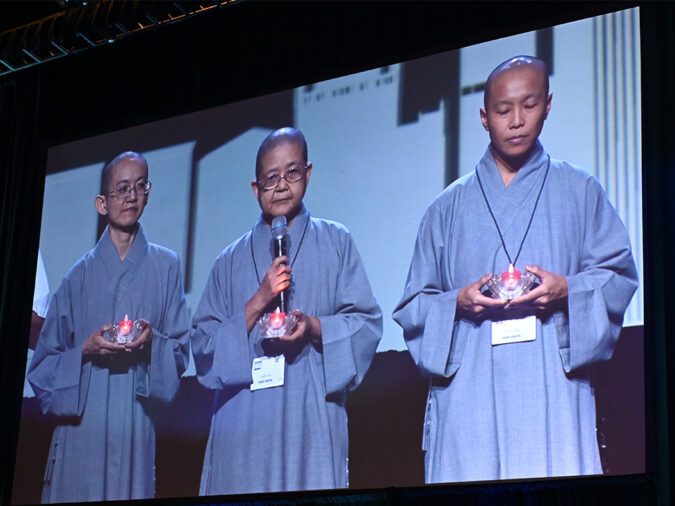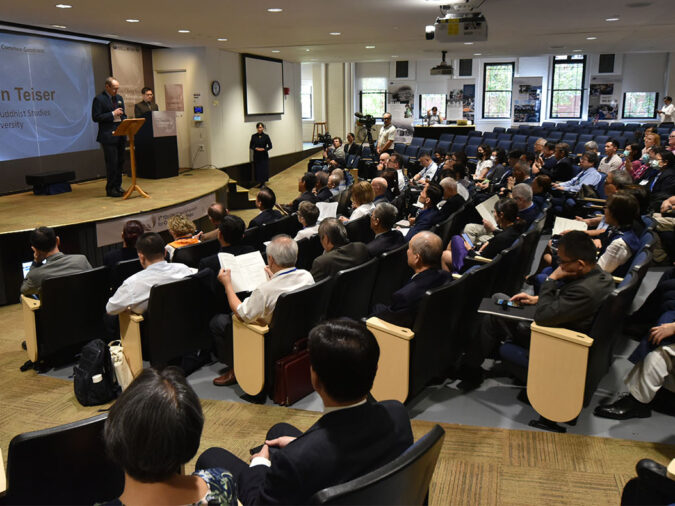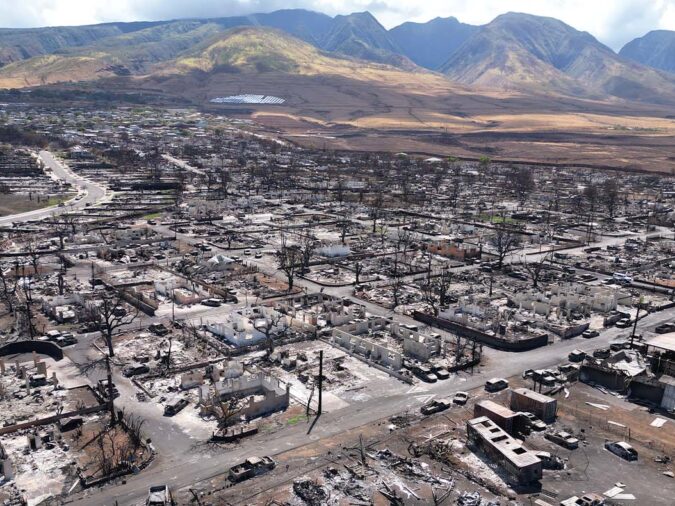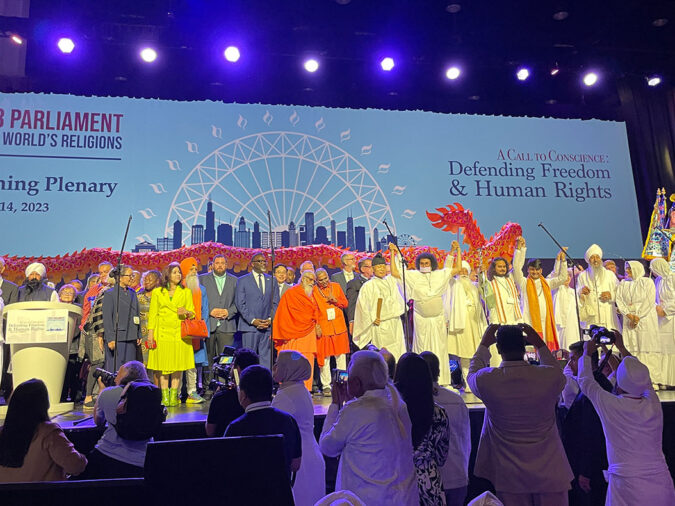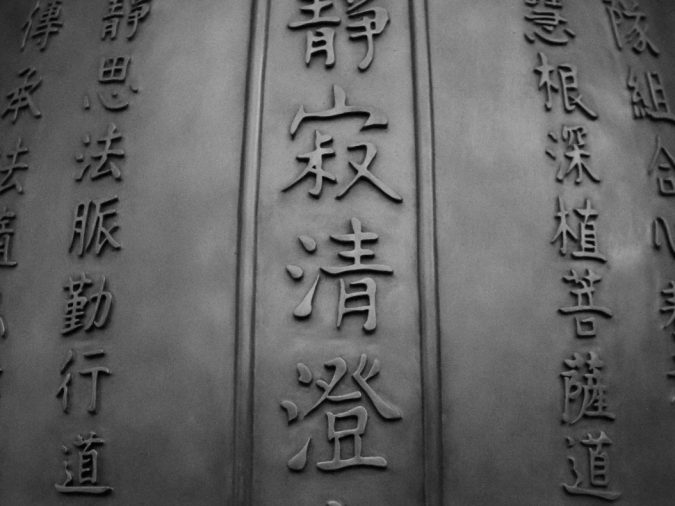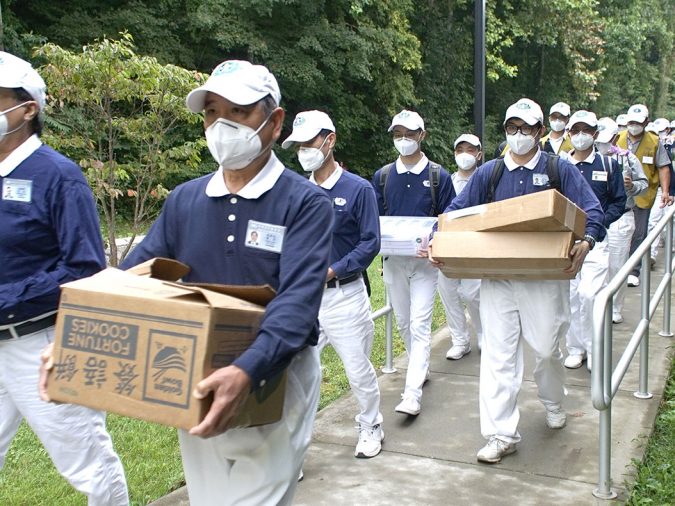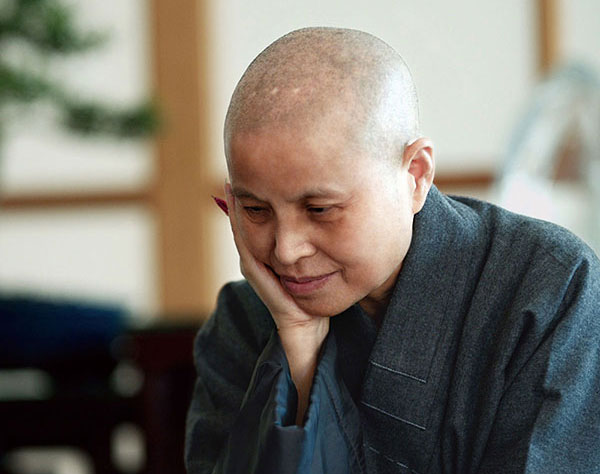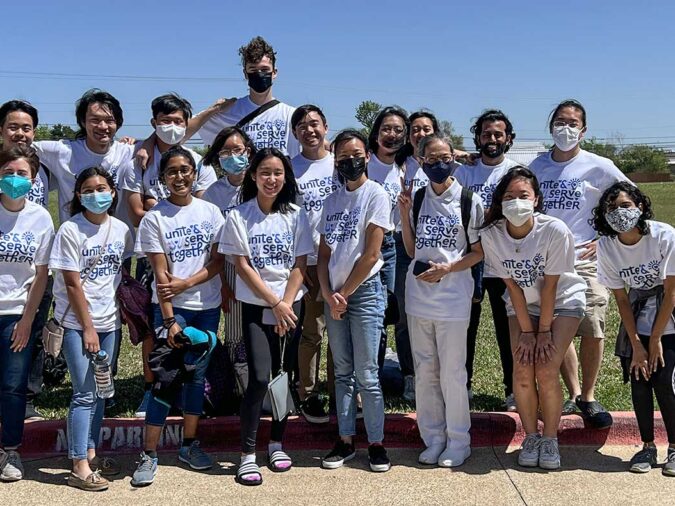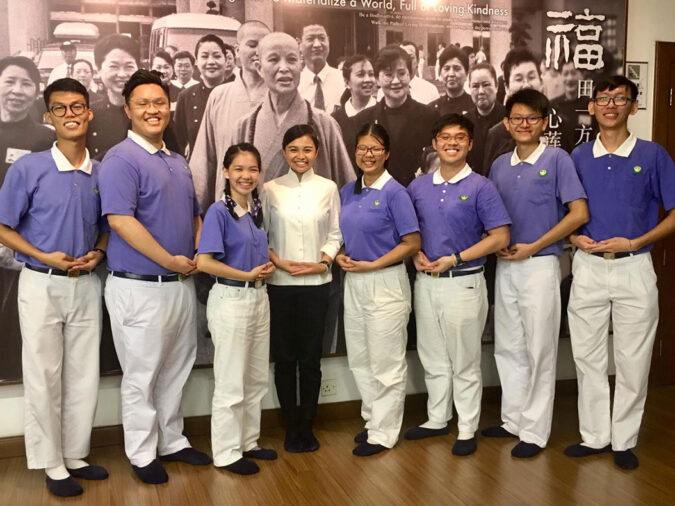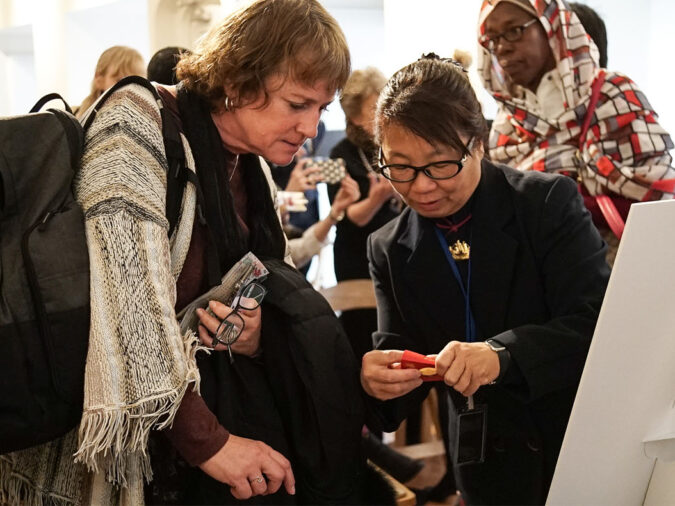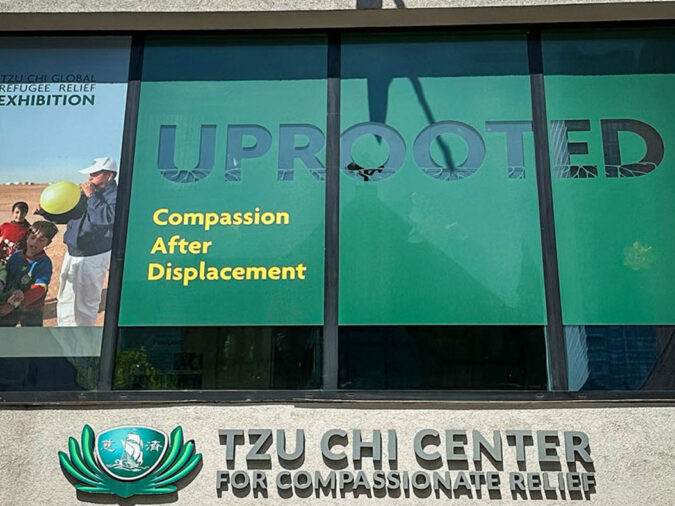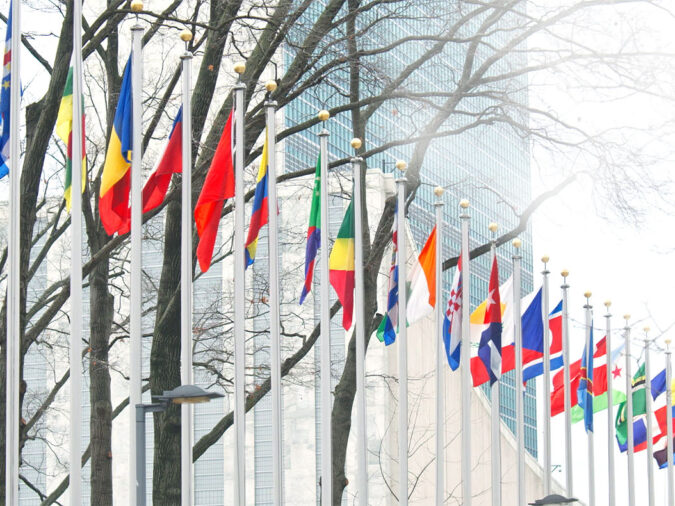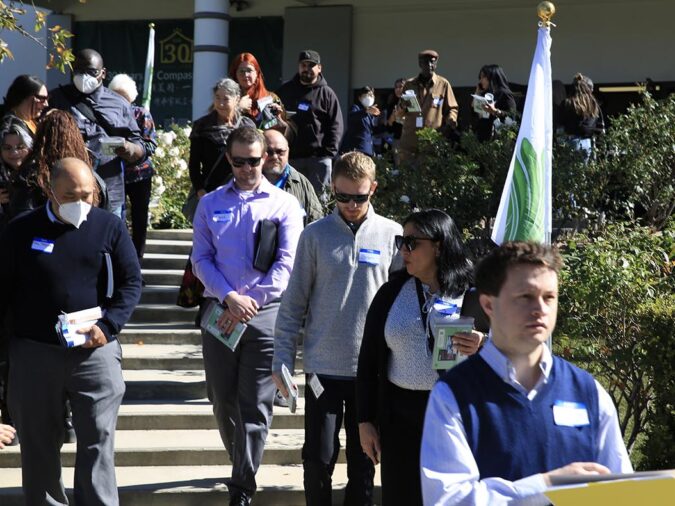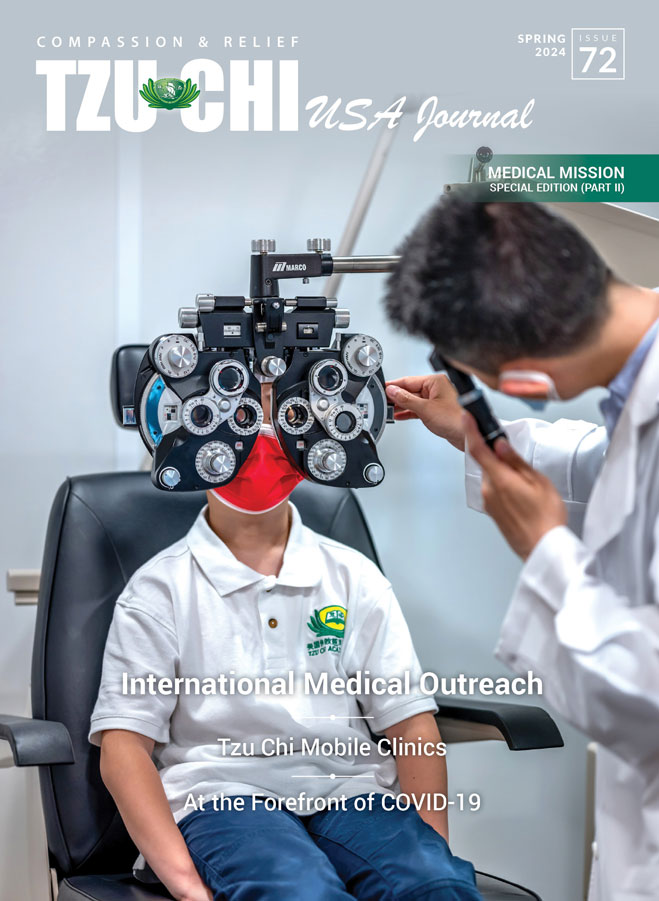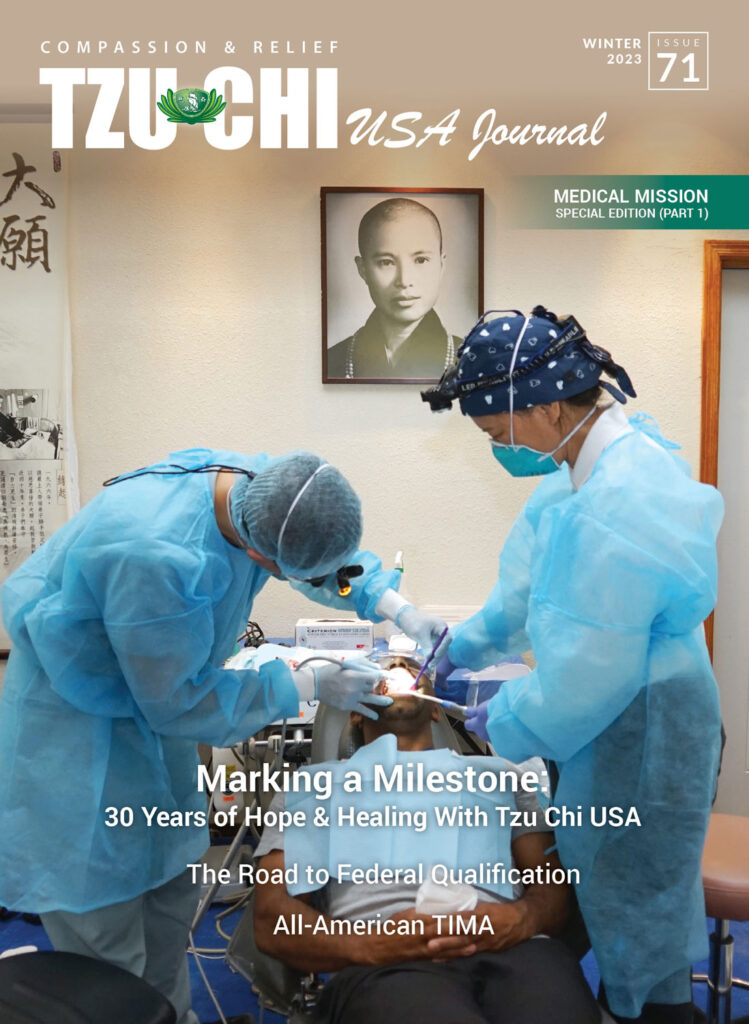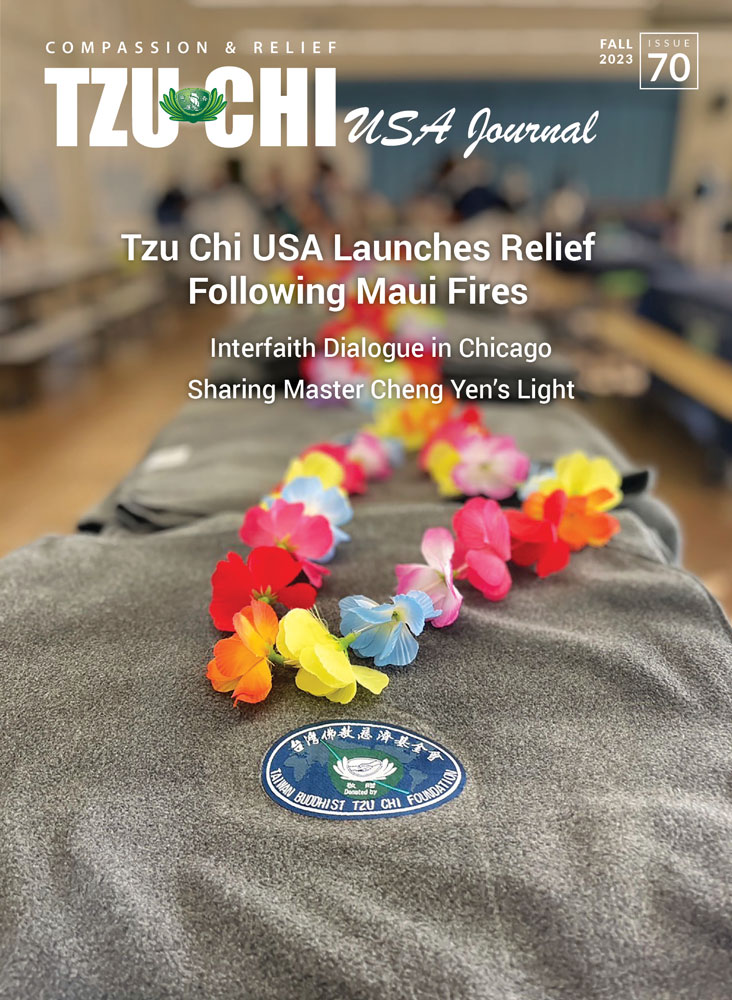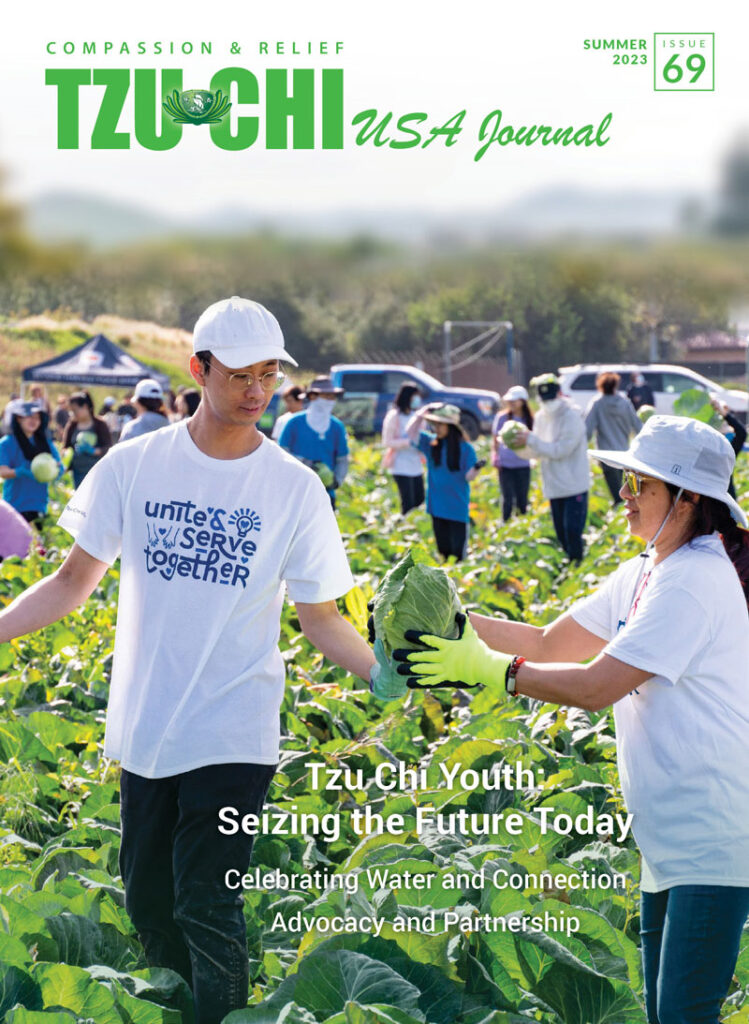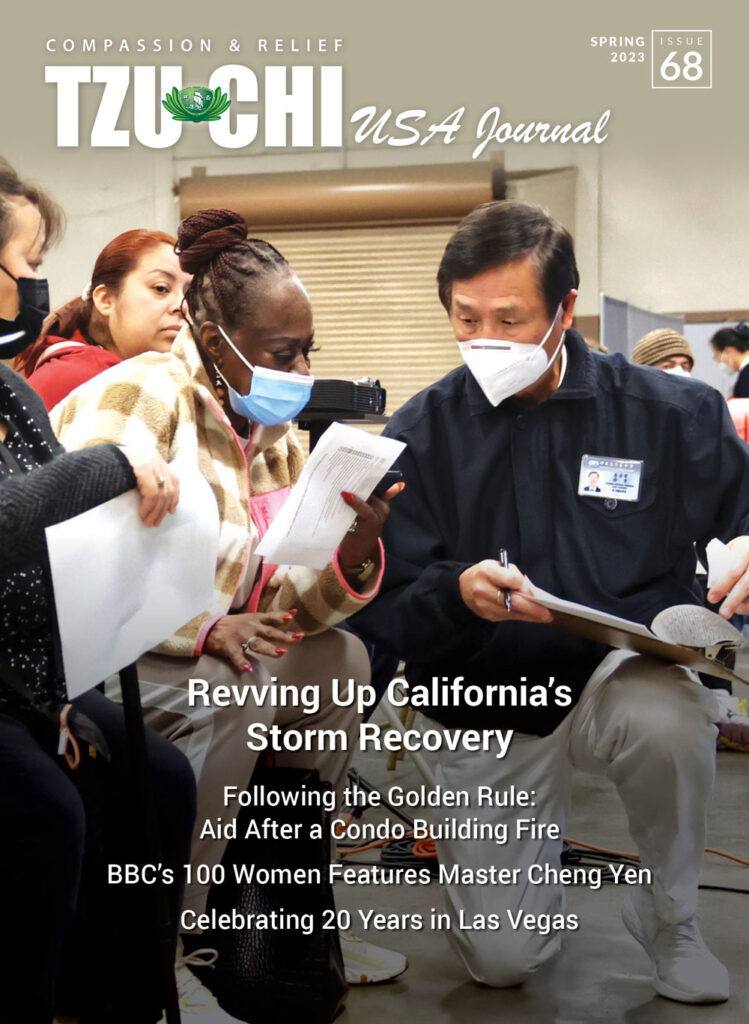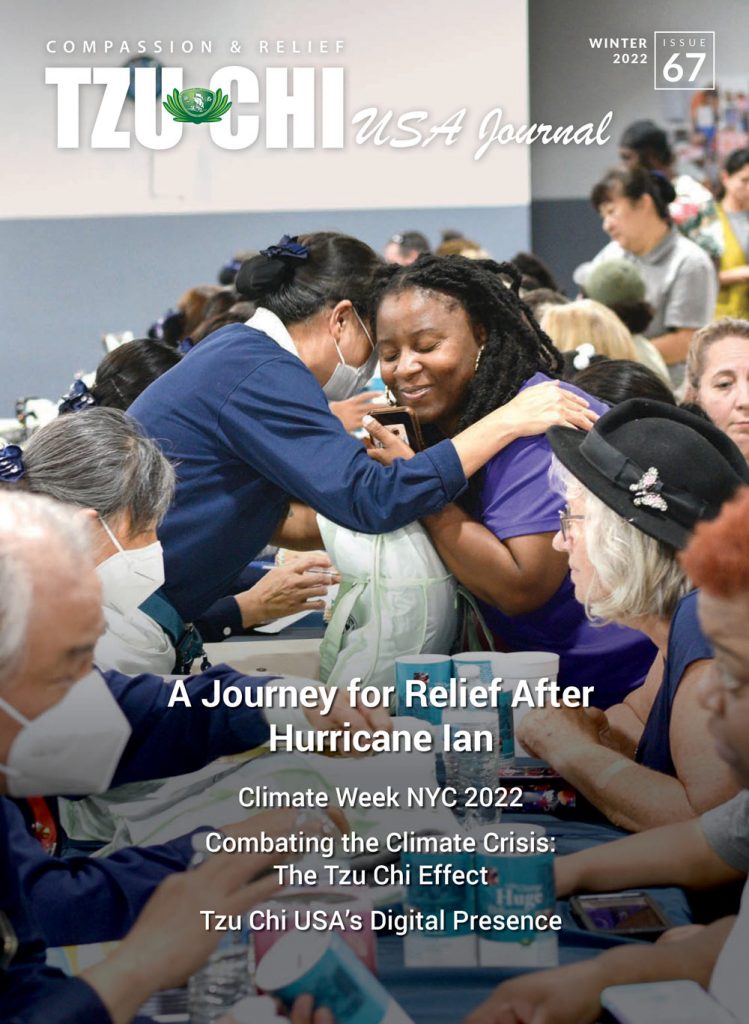CHAPTER 4
International Medical Outreach
Bolivia
Written by Gina Shih
Translated by H.B. Qin
Published #72 | Spring 2024 Issue
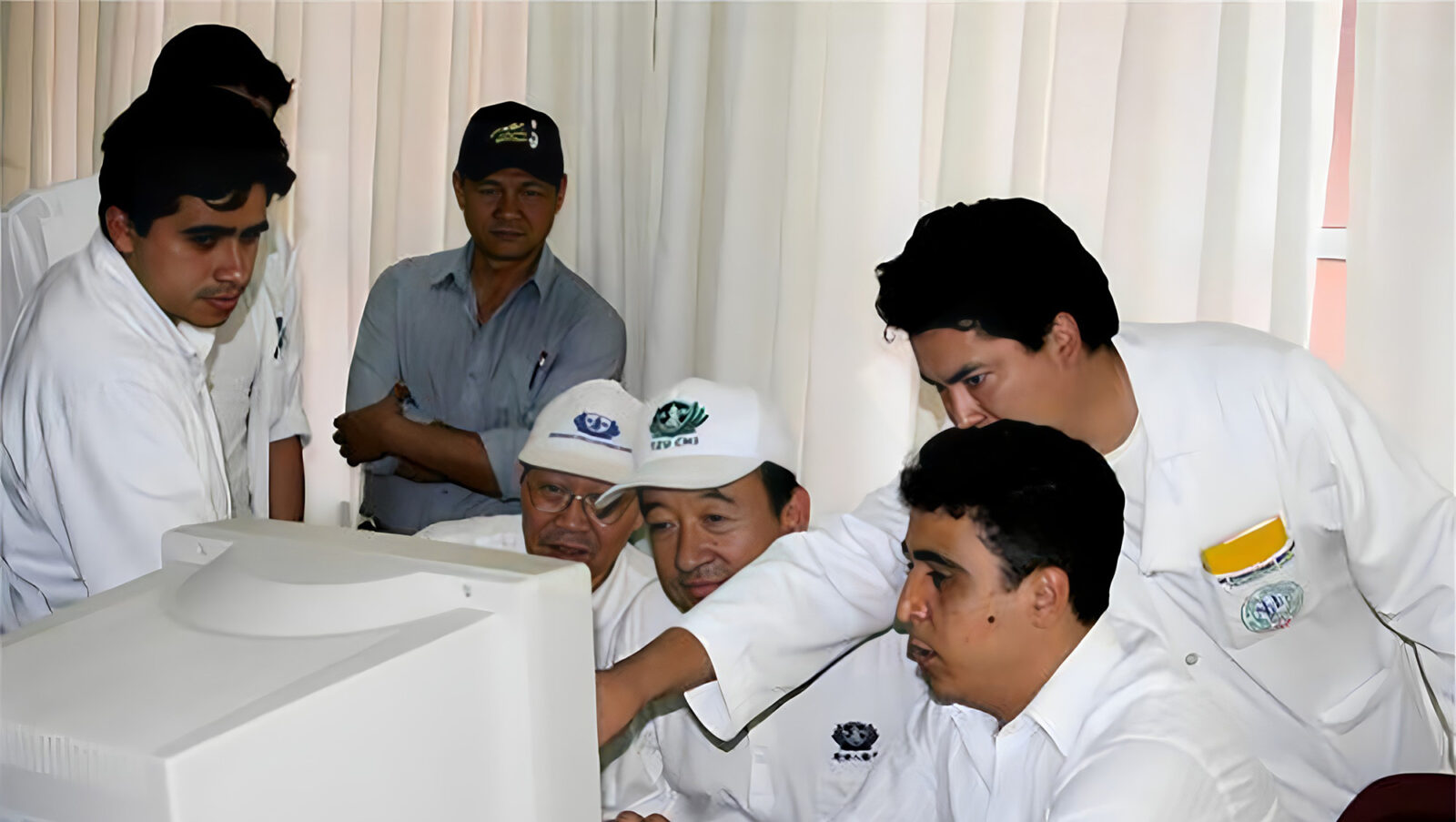
On August 13, 2007, Dr. Mathew Y.C. Lin communicates with orthopedic surgeons at the Hospital Municipal Francés in Santa Cruz de la Sierra, Bolivia. Photo/Peter Chen
SHARE
In January 2007, due to the El Niño phenomenon, Bolivia in South America was hit by torrential rains, with over 60% of the country flooded and none of its nine departments (primary subdivisions) spared. The floods destroyed roads and bridges, leading to food shortages and goods supply interruptions. As rivers backed up, the waters inundated good land, demolished buildings, and left more than 76,000 families without homes.
Getting Out of the Morass
What happened in early 2007 in this land that Tzu Chi had not yet set foot in concerned our volunteers. On April 26 of that year, Tzu Chi USA decided to provide cross-country support to Bolivia in its time of need. A team of volunteers promptly set off to assess the disaster and bring swift aid. Thus began Tzu Chi’s 64th international relief mission.
On May 23, an international disaster relief team with 37 members from Paraguay, Argentina, and the United States arrived in Santa Cruz de la Sierra. After several consecutive days of gathering materials, packing, site surveying, and planning, Tzu Chi and the City of Trinidad in Beni Province officially started aid activities on May 29, and by the 30th, had distributed more than 4,000 blankets, about 12,000 sweaters, over 16,000 cans of powdered milk, and about 2,000 plastic wash basins and buckets each. The supplies were valued at $150,000 and benefited about 2,020 households in 16 affected communities.
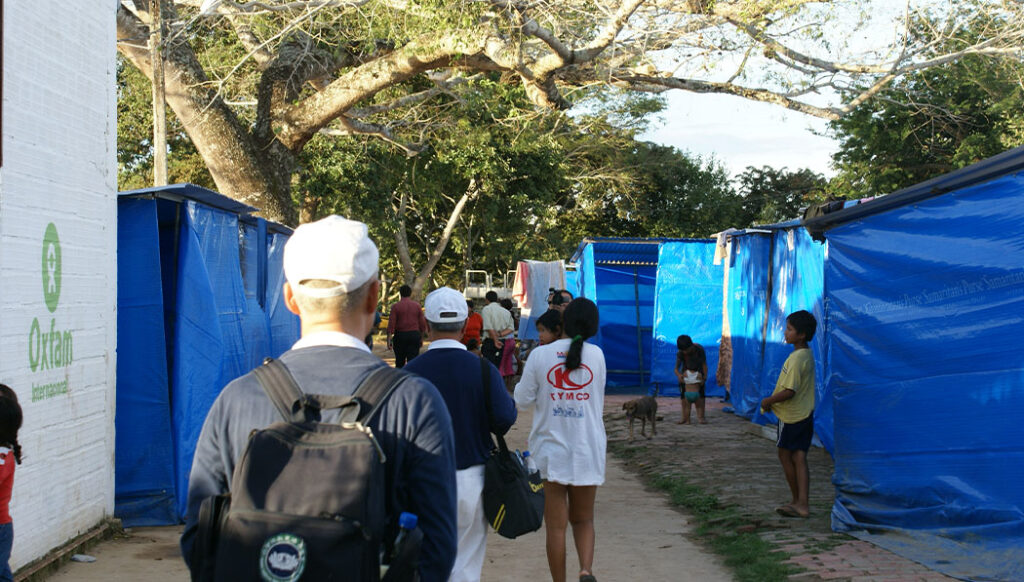
As the volunteers conducted disaster aid distributions that month, they learned that many people couldn’t get any medical care. “People can’t gain an income due to illnesses, and can’t gain an education because of poverty, and a lack of health education aggravates illnesses, which becomes an inescapable spell,” senior Tzu Chi International Medical Association (TIMA) nurse Wendy Kang said, noting that many local people had been sick for a long time. Moreover, with the impact of the flooding, healthcare conditions further deteriorated at an accelerated rate, with diseases such as dengue fever and malaria spreading rapidly. Under these conditions, the need for free clinics was evident, and plans were soon underway.
On August 9, TIMA members and Tzu Chi volunteers assembled in the department of Santa Cruz, with 61 from the U.S., 17 from Argentina, and ten from Paraguay arriving one after another. The team undertook to provide free clinics and distributions a distance away, working in collaboration with the local Chinese community. “We took an over-ten-hour flight and then a four-hour bus ride,” Kang recalled as the team arrived at a hospital in the small town of Mairana on August 10 after a long and bumpy ride over the mountains to reach it. What they discovered at the healthcare facility were appalling working conditions.
The conditions were about 20 to 30 years behind Taiwan. The equipment and facilities were all primitive, and there was only one worn-out delivery table while the operating room was also very shabby. There was a power outage on the day of surgery, so the nurse had to hold a flashlight in one hand and pass instruments to the doctor with the other; the operation was completed with great difficulty.
Wendy Kang
Senior TIMA Nurse
Despite such challenging conditions, the Tzu Chi medical team conducted a large-scale free clinic over three consecutive days, providing dental, ophthalmology, surgery, acupuncture, family medicine, orthopedic, pediatric, and pharmacy services to more than 5,000 people.
Sonia Vincenti, wife of the then Santa Cruz Department Governor, strongly supported the free clinic and encouraged local doctors to exchange ideas and learn from the group of medical professionals that had come there from different countries. Fifty doctors participated in the event. “We’re grateful to the Tzu Chi volunteers who came from all over the world to organize free clinics for the disaster survivors and to teach local doctors how to care for the local population in ways that give people access to medical services they can rely on.”
Thirty-Three Surgeries
Later that year, in November 2007, heavy rain across months once again hit Bolivia, a disaster that would affect over 123,000 households by mid-April 2008. Considering that the situation was grave and prolonged, 35 Tzu Chi volunteers from the United States, Paraguay, and Argentina formed a disaster survey team, which arrived in Santa Cruz de la Sierra on February 24. After they assessed needs, the team collaborated with local volunteers and jointly held free clinics and aid distributions.
Tzu Chi partnered with Hospital Municipal Francés in Santa Cruz de la Sierra for the free clinics. The hospital, constructed with funding from the French government, had opened in October 2006, yet it had a shortage of medical equipment and healthcare professionals due to insufficient financing. Tzu Chi’s professional medical team brought sophisticated experience and expertise that would benefit the local community.
“At the time, the hospital director told me that there were many local gallbladder patients who didn’t have access to treatment, and he hoped that we could work together to provide them with the required surgery,” Dr. Peter Chen, a TIMA physician, recounted. Chen and the hospital’s doctors operated on 33 hernia and gallbladder patients in three days, solving a problem that had plagued them for years.
Every one of them had a gallbladder that was an adhesive mess. The patients had been sick for a long time without any treatment, and the illness kept recurring, which would cause adhesion, so they were stuck in a vicious cycle.
Peter Chen
TIMA Physician
During the free clinic, the doctors encountered complex cases. Jastina, a 50-year-old woman, had a hernia caused by her intestines penetrating her abdominal muscles, and there was a massive lipoma on her belly, which made her almost incapable of taking care of herself. Fortunately, Dr. Chen was capable and ready to tackle the surgical treatment required.
“I operated with the hospital’s chief of surgery. We peeled away the intestinal adhesion slowly. If we had not been careful in doing so, and if the small intestine had ruptured the surgery would have failed,” said Dr. Chen. Fortunately, he had brought his own artificial peritoneal belt from the United States. After a two-and-a-half-hour operation, Chen successfully returned Jastina to health. “This was an exceptional surgery, seldom done in the U.S.; it was the second time I’d done it, and it was a big gamble,” he shared.
Building a Medical Force Together
Tzu Chi’s collaboration with Hospital Municipal Francés (HMF) allowed its doctors to recognize senior TIMA physicians’ excellent medical skills and heartfelt patient care, which motivated them to learn. On September 10, 2008, Tzu Chi University in Taiwan officially inaugurated its Medical Simulation Center. Subsequently, Dr. Chen took an HMF team comprising Director Fernando Lacoa Mendoza, four surgeons, and an anesthesiologist to Taiwan to participate in a six-day simulation surgery training program.
In addition to refining their medical skills, the Bolivian doctors also experienced a baptism of compassionate humanity during the practicum since whole-body donations to the medical school for use in anatomy classes and surgery training made this program possible. At the end of the session, the Bolivian team gathered in the wind and rain with the families of the body donors and TIMA members to pay their respects in a final ceremony for the noble donors.
Looking back at the experience, Jerjes Torrico Azurduy, then Chief Physician of HMF’s Surgical Department, said, “Through Tzu Chi, I’ve learned not only medical skills, but also the respect for body donors, and I’m deeply touched by the Tzu Chi volunteers’ treatment of them as if they were family members.”
During the trip, the Bolivian doctors also participated in TIMA’s 10th Anniversary Annual Meeting and felt the Association’s love. HMF Director Mendoza expressed his wish to establish TIMA in Bolivia: “We will do our best to help those in need in our workplace. We will also combine our efforts with those of TIMA in Argentina and Paraguay to reach out and help those suffering.”
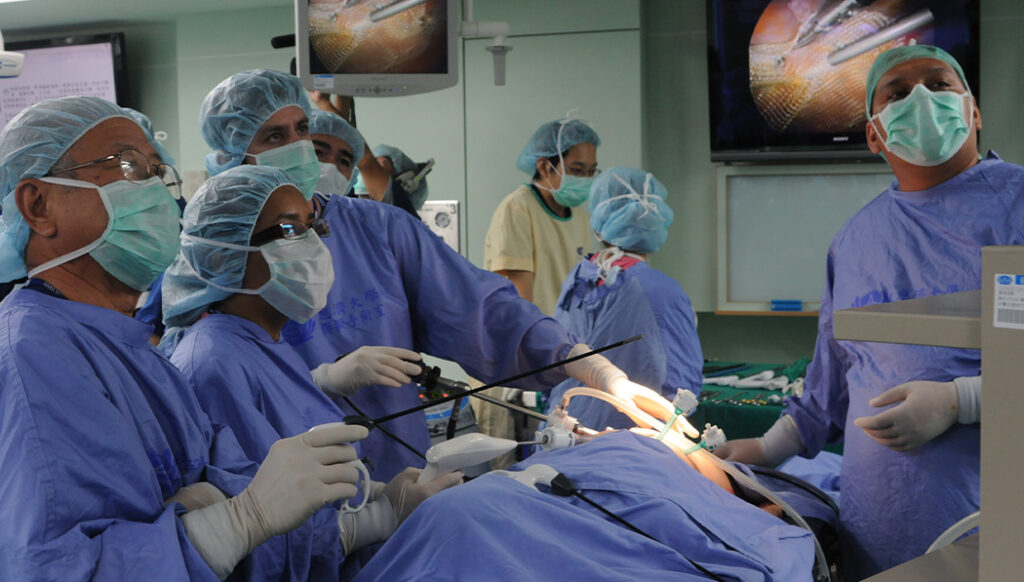
South American Countries Support Each Other
As Tzu Chi USA volunteers sowed seeds across borders, Tzu Chi’s spirit and compassion began to take root in South America. When disaster strikes on this continent, Tzu Chi volunteers from many South American countries will support each other and work together, creating ripples of goodness through the example of their good deeds.
In 2016, when an earthquake struck Ecuador, Mingming Tsai, a Traditional Chinese Medicine doctor from Bolivia, joined efforts to provide medical assistance to disaster survivors in Ecuador. In 2019, when the Amazon Rainforest fires spread to Bolivia, a group of 16 people, including Dr. Zhongcheng Gao, a TIMA doctor from Argentina, traveled to the city of Concepción and other places in Bolivia for free clinic activities to relieve firefighters’ fatigue and pain with acupuncture and other treatments.
As the COVID-19 pandemic spread around the globe in 2020, Tzu Chi volunteers in Bolivia donated medical supplies such as respirators and masks to hospitals in Santa Cruz de la Sierra and Montero. On December 23 that year, Tzu Chi Taiwan donated 40,000 COVID-19 Antigen Rapid Test kits, jointly developed by Tzu Chi University, Taipei Tzu Chi Hospital, and Academia Sinica, to assist Bolivia in controlling the pandemic.
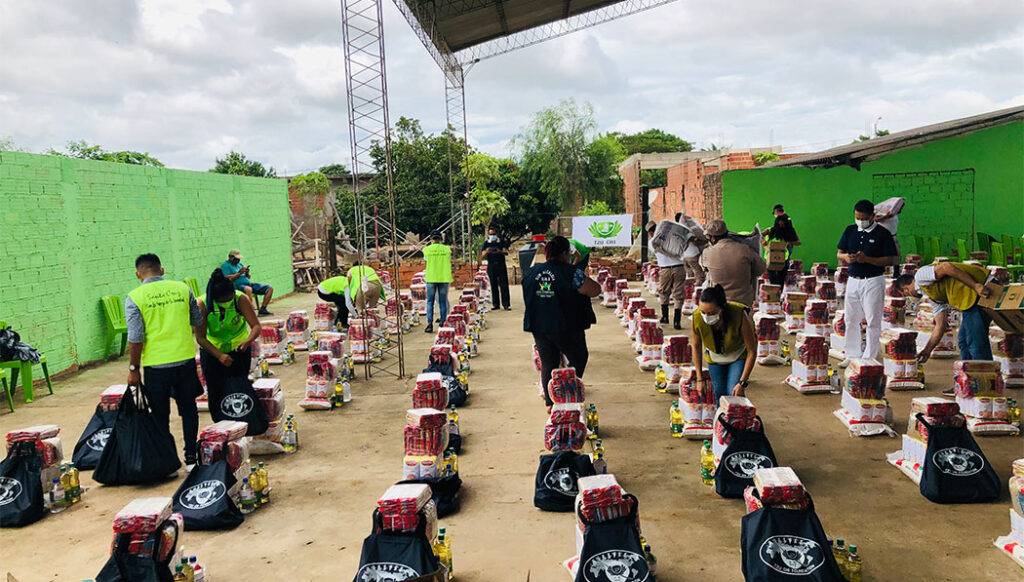
Tzu Chi’s love persists in Bolivia as time passes, evidenced by its activities, from emergency relief to medical care to charity. Volunteers will organize aid distributions periodically to provide food and daily necessities, and help disadvantaged families overcome their challenges. Collectively, Tzu Chi volunteers strive to be like a giant pair of helping hands, ever ready to provide assistance and support in times of need.
We hope that the physical actions of Tzu Chi volunteers will not only provide substantive help to the Bolivian people but also let them come into contact with a warm heart and a pair of warm hands so that they can become their spiritual harbor.
Wendy Kang
Senior TIMA Nurse
